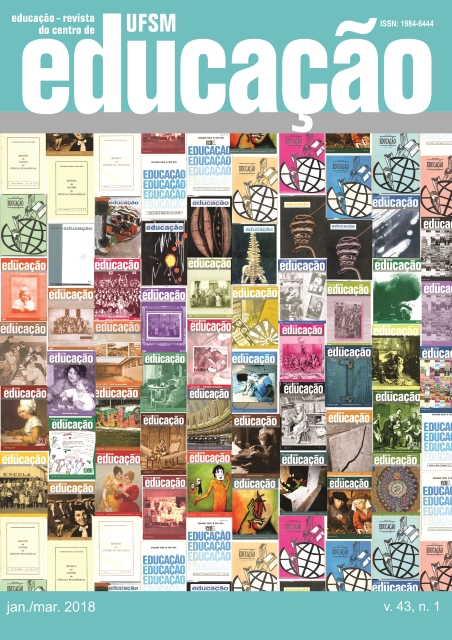The dimensions of pedagogical practice and teacher writing: challenges of teacher education
DOI:
https://doi.org/10.5902/1984644423023Keywords:
Pedagogical practices, Academic writing, Classroom diariesAbstract
This article presents results of the research "The dimensions of pedagogical practice and the writing of teachers: challenges of teacher education". Through the Classical Diaries (ZABALZA, 2004) it is analyzed which pedagogical dimensions are included in the Journal of Academics in the Pedagogy Course, as well as converting such documents into the possibility of writing qualification. The methodology of work followed the 1) an explanation of the characteristics of the Classroom Diary; 2) indication of the writing frequency of the Journal; 3) recording the greatest possible number of information; 4) identification of pedagogical dimensions; 5) analysis of writing, under the criteria of: vocabulary repetition, spelling, textual cohesion and coherence; 6) Analysis of the Diaries to follow the processes developed in the Internship, and advances in writing. Some results about pedagogical dimensions: 1) planning needs to be reaffirmed as an organization of teaching, as a prediction, as a script; 2) Planning needs to appear as an element that precedes the lesson; 3) Planning is not the description of what has already happened, but the projection of what will happen; 4) the objectives, methodology, resources, activities planned in the planning need to point to the same purpose (s). About writing: 1) the scarce use of cohesive elements; 2) the compromise of textual coherence; 3) vocabulary repetitions; 4) spelling errors in writing irregular verbs; 4) overly informal language.Downloads
Published
How to Cite
Issue
Section
License
Declaration of originality
We declare that all articles present in the journal Educação (UFSM) are originals and were not submitted for publishing on any other publication, as a whole or a fraction. We also declare that, after being published by Educação (UFSM), a paper will not be submitted to another journal within two years. After this time, our journal transfers the publishing rights to the authors, with a permit granted by the Editorial Council.
We also acknowledge that the originals’ submission to Educação (UFSM) implies on a transference of copyright for physical and digital publishing to the journal. In case of noncompliance, the violator will receive sanctions and penalties predicted by the Brazilian Copyright Protection Law (n. 9610, dated 19/02/98).
Attribution 4.0 International (CC BY 4.0)
This license lets others remix, transform, and build upon the material for any purpose, even commercially, and copy and redistribute the material in any medium or format.

This work is licensed under a Creative Commons Attribution 4.0 International (CC BY 4.0)






